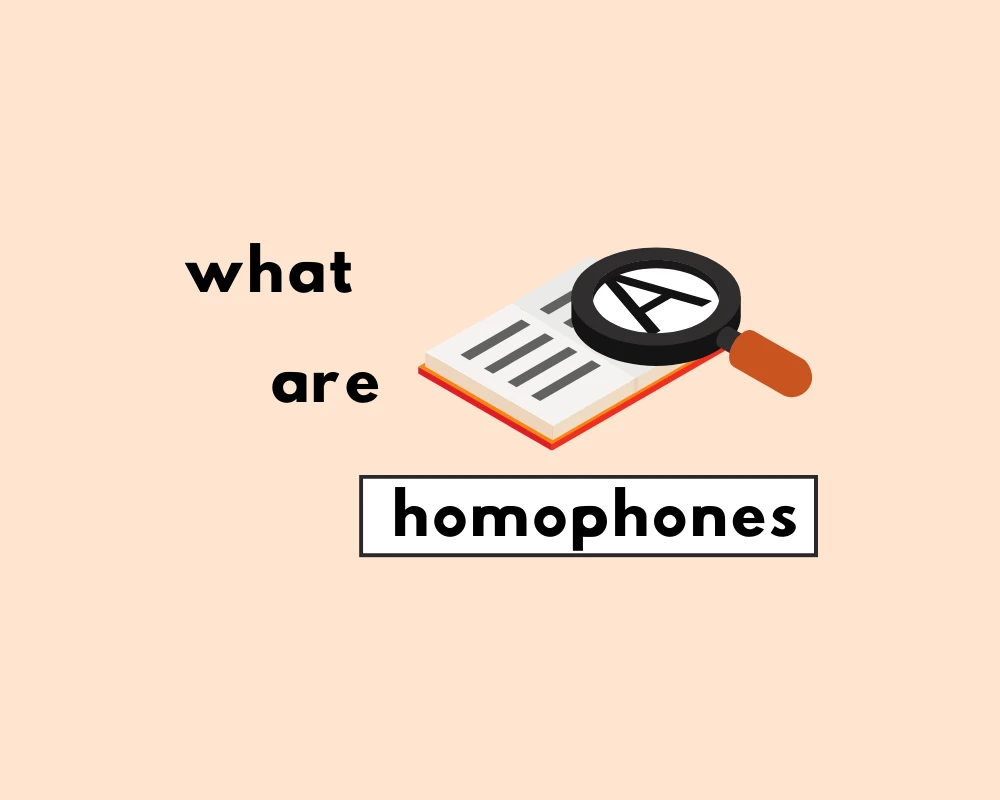Contents
Toggle
What are homophones?
If (like me) you love your punny humour and jokes, then it may interest you to learn that puns are based on homophones being used in the correct context (i.e., the relevant meanings of whichever word or words apply). If this sounds like it’s all Greek to you, keep reading (things get clearer below).
Meaning of the word “homophone”
Homophone is a compound of the Greek words homo meaning “same”, and phone meaning “sound”. Combined we get “same sound“; which is precisely what homophones are: they are words that sound the same, but they mean different things, or can have various meanings.
An example: A bear must bear their own weight while traversing through the deep winter snow.
Bear and bare are homophones: they sound the same, but mean different things and are spelled differently. Bear can be a noun or a verb:
- As a noun, bear refers to the great Grizzly bear, like the wild animal with thick paws and heavy fur that hibernate during the winter. You know what I’m saying.
- As a verb, bear means to endure or tolerate something that’s typically unpleasant, or to carry the burden or weight of something (either literal or figurative, and as in the phrase, “to bear with” something or someone).
- Bare is mainly an adjective that means “not covered by any clothes”, as in, to be naked. It’s correct use is in phrases like “bare naked” or “barefooted“.
This is why homophones are so regularly screwed up by many–they’re confusing by design. We could probably chalk up the majority of errors in spelling and word choice to English’s endless list of homophones (and homonyms). Here’s a list of some of the most popular mistakes in English. We have a post dedicated to each (which is exciting!)
- To, too and two
- Their, they’re and there
- Whether and weather
- Who’s and whose
- Bear and bare
- Aid and aide
- Passed and past
- Aisle and isle
- Desert vs dessert
- Principle or principal
Homophones are some of the trickiest words for English learners, and even native English speakers to get right. Another thing to note is that homophones can be spelled the same or not, but the important point is that they sound the same while differing in meaning.
Homonyms
Homonyms are “one of two or more words spelled and pronounced alike but different in meaning”, from Greek homonymon: homos “same”, and onyma, meaning “name”.
We can break down homonyms into two subtypes: homophones and homographs. This makes all homophones and homographs homonyms, but not all homonyms are homophones/homographs (that is, not all A’s are B’s). The takeaway on homonyms is that words with any combination of the same spelling or sound (but differ in meaning) classify as homonyms.
Homographs
Homographs are “two or more words spelled the same but not necessarily pronounced the same and having different meanings” (etymonline, homographs). Bear it’s pronunciation and spelling stays the same, but its meaning is completely different as a noun vs. a verb. These words are pronounced the same, but this doesn’t have to be the case: homographs are always spelled the same, but they can be pronounced the same or differently. For example, the word lead has two pronunciations depending on if you use it as a verb or a noun.
- As a verb (in the present tense), lead sounds like beed, seed, or feed, with an elongated “e” sound.
- As a noun, lead refers to the grey metal that goes into water pipes and roofs. Here lead sounds same as the past tense of the verb form of lead (i.e., led). In other words, lead, (the metal), rhymes with bed and fed, despite having the exact same spelling as lead the verb, meaning to guide or show someone the correct path.
Here’s another example with the noun and verb, “spelt“:
- Spelt (as a noun) refers to an ancient and hulled grain that’s similar to barley or rye.
- As a verb, spelt is a past tense and participial form of spell, meaning, “the act of writing or saying the letters of a word in the correct order”.
To make things even more confusing, spell, in the present tense, is also homonym since it means something else as a noun; that is, “a spoken word or form of words held to have magic power”. Like, a witches spell.
Sources
- Harper, Douglas. “Etymology of homophone.” Online Etymology Dictionary, accessed 13 December, 2023.
- Harper, Douglas. “Etymology of homograph.” Online Etymology Dictionary, accessed 13 December, 2023.
- Harper, Douglas. “Etymology of homonym.” Online Etymology Dictionary, accessed 13 December, 2023.
- “What is Spelt, and Is It Good For You?”, accessed 13 December, 2023










